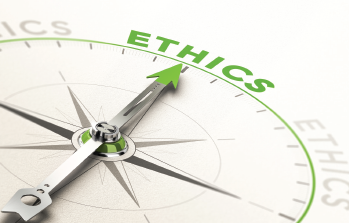
© Olivier Le Moal / Shutterstock.com
Clinical Scenario
You are seeing a 39-year-old man on a return visit after biopsies confirmed the diagnosis of a squamous cell carcinoma of the left floor of the mouth and ventral tongue with clinically positive nodes in the left upper neck. PET scan revealed no distant metastases. You discuss the various treatment modalities with the patient today, including induction chemo-radiation therapy, and for reasons of his own importance, the patient selects primary wide local excision of the tumor, left neck dissection, and reconstruction with a microvascular free flap. As your discussion turns to perioperative care, the patient acknowledges that he was a former narcotics addict and continues to attend Narcotics Anonymous meetings for maintenance of abstinence. He is very adamant about not taking opioids after the surgery and refuses to reconsider chemotherapy and radiation therapy. However, he does state that he has done some research on alternative pain medications and believes that the drug gabapentin would be a good choice for him postoperatively. You review in your mind the FDA indications for gabapentin and realize that prescribing the drug for routine postoperative pain would be “off label,” and that you have no experience in using it in this manner.
Explore This Issue
December 2019How would you handle this case? Read below for the discussion.
Discussion
Off-label drug prescribing (OLDP) is a complex and evolving issue in medicine. A physician considering prescribing a certain medication that is not on the FDA-approved indications list must contemplate three aspects of that decision—legal/regulatory, clinical evidence, and ethics. Currently in the US, OLDP is legal and relatively common in medical practice. A number of reasons exist for this legality, including the fact that physicians have been granted broad discretion in extending indications for prescribing a drug that, in their clinical judgment, has a positive benefit/risk ratio. Indeed, just because a drug is “approved” for certain specific conditions does not mean that it might not be helpful for a given patient with a similar or related condition. FDA approval reflects a decision that is made on evidence from clinical research trials submitted to the agency by a pharmaceutical company to treat a limited number of conditions. Because clinical trials are very expensive, not all “possible conditions” that might be targets for this drug will be included in these trials. Thus, there is post-approval latitude for physicians to consider additional conditions that might be improved through treatment with the drug.
While it is not clear just what is the incidence of OLDP in the U.S., it may be as high as 20% for many drugs. Once the FDA approves a drug for use in certain disorders, it can legally be prescribed for other disorders as long as due diligence and good clinical judgment are applied. It is not uncommon for off-label treatments to become standards of care over time as the benefits and safety profiles are increasingly known.